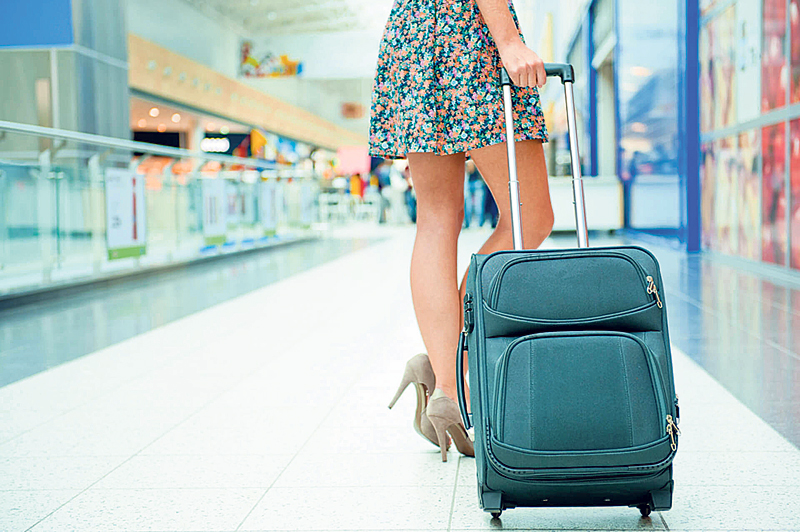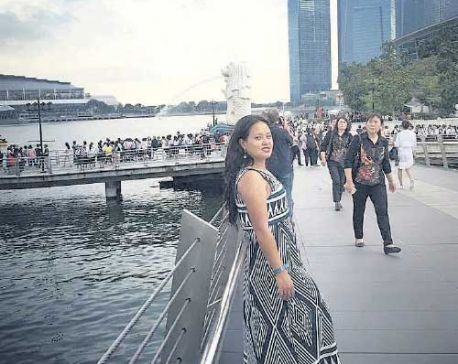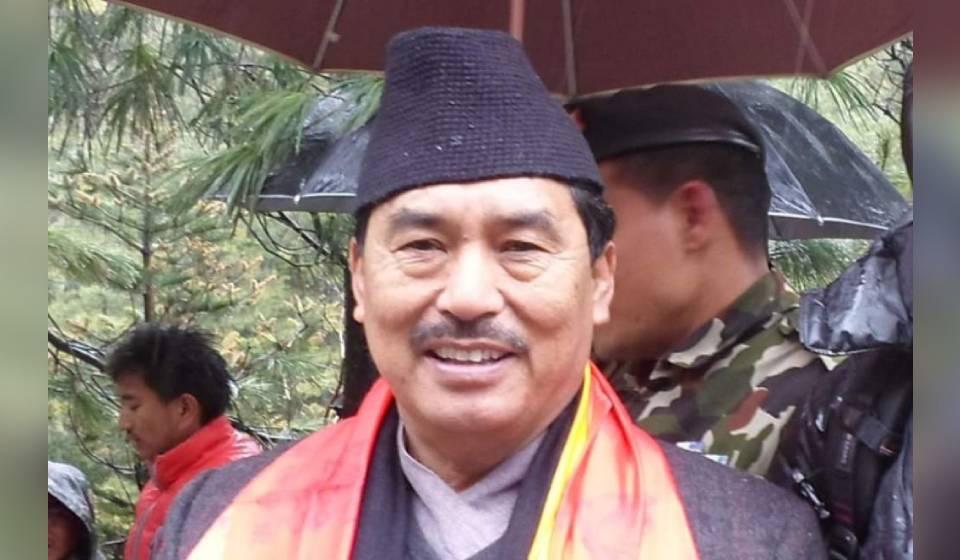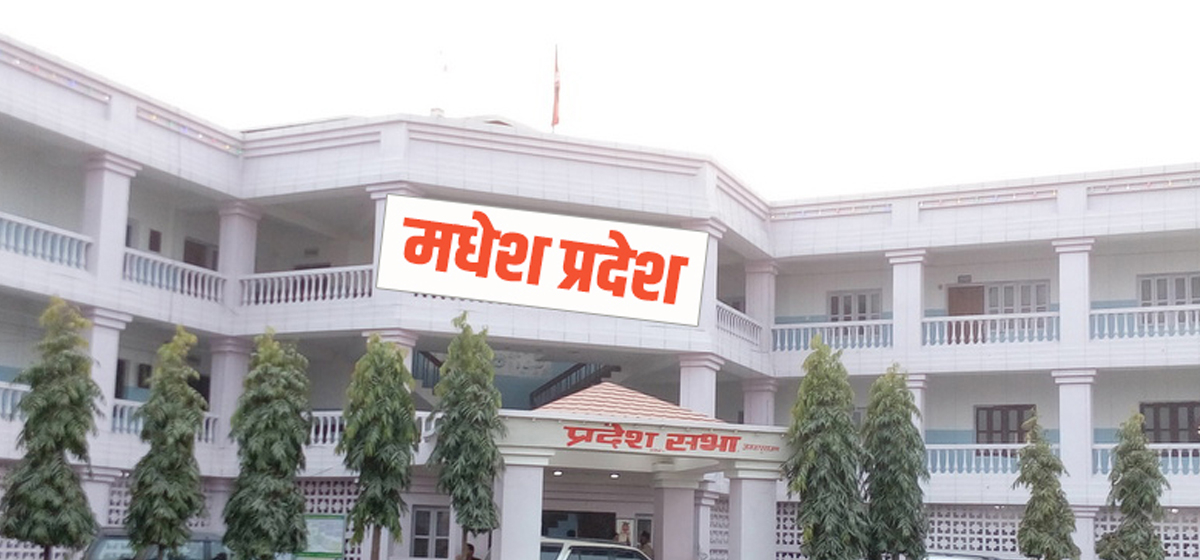
OR
The ultimate travel CHECKLIST
Published On: July 22, 2016 01:15 AM NPT By: Republica | @RepublicaNepal

The excitement around any upcoming travel plans is always immense. But amidst all the anticipation, one must not forget about the important things. Indeed, whether you are a first-time traveler or someone who has gone more miles than they can count, the art of traveling requires certain acts of mindfulness. No matter if you are a solo traveler, a packaged-tour-lover or a weekend adventurer to a far off place, it is crucial to keep some basic things in mind when you set off to another country. So The Week brings you a check list of some of the things you might want to keep in mind before you set off in your travels.
Take precautions for the worst
Just to be safe, leave copies of your passport and address/contact information of where you are going with someone at home. Also, make a few extra copies to keep in your suitcase during your trip in case the original gets lost or stolen. Also make sure you let a couple friends or family members know all about your travel plans. Such information might be crucial in case of emergencies. Furthermore, become fully acquainted with the whereabouts of the Nepali embassy in the country you are visiting.
Get healthy
Obtain proper medical advice before you go. There is nothing worse than having to spend a vacation stuck to a hospital bed in a foreign country. So let’s not skip research on this part. Find information about the necessary health concerns that might be prevalent in the region you are planning to go to. Get online to find out what health precautions you will need to take before visiting your planned destination. Your local doctor should also be able to help you with vaccination advice for the particular country you’re visiting. Make sure you take these steps well in advance. Many vaccinations require repeat doses, and/or take time to take effect.
Manage your cash flow
If you’re traveling overseas, the most economical option is to visit an ATM as soon as you arrive in your destination and make a withdrawal in the local currency. Check the website of the airport where you’ll be arriving to make sure it has an ATM you can use. Most international airports have several, but if you’re flying to a smaller airport in a developing country, there’s no guarantee that there will be one (or that it will be working properly). In these cases, you may want to purchase some local currency ahead of time.
Also make it a point to call your bank or credit card company to let them know about your travel plans. Some banks and credit card companies keep track of spending patterns and may interpret unexpected overseas purchase as credit card fraud. Your account could be locked if you use your card in another country without notifying your bank.
Buy health and travel insurance
This is one of the most overlooked aspects among Nepali travelers. But insurance can actually be a saving grace in the face of a real emergency. Before you travel, check your health insurance policy to see if it includes international coverage. If not, consider buying a short-term policy that will cover you while you’re abroad, in case something should happen. Similarly, a smart way to protect your trip and your money is to purchase travel insurance. Policies and coverage vary from provider to provider, but the basic idea is that you can have your money refunded if your trip has to be cancelled, postponed, or cut short for any number of reasons.
Be smart with your belongings
Always firmly hold your belongings in a way that they can’t be snatched from you and don’t dress extravagantly in expensive jewelry or accessories. Travelling abroad may turn you into a photographer but be cautious of flaunting your digital SLR camera. It’s important not to make yourself vulnerable to robbery and theft. Depending upon where you are, you may want to consider always leaving your laptop, jewelry, watches or other expensive items at home rather than carting them around with you.
Confidential all the way
Security experts suggest that it is best to treat your plans like top secret information when you travel. Don’t leave evidence of all the details about where you are, with whom and what you plan to do because you never know who is listening — or reading. You don’t want any trouble following you around in a strange city, especially if you happen to be traveling solo. Criminals have also been known to troll social media sites like Facebook and Twitter. We know it’s hard not to ask the social media universe for travel recommendations or to stop posting your amazing vacation pictures on Instagram, so if you are terrible at keeping a secret, we suggest at least adjusting your privacy settings for a little quality control.
Learn about the local laws
Once you enter a country, you are subjected to its laws. Therefore, for your own safety, it’s important to learn about them before visiting. For instance, in Singapore you can be arrested for spitting in public and there are countries where hand gestures like a “thumbs-up” sign or the “a-ok” sign is considered provocative. Even seemingly minor things like that can get you in major hot waters and these are scenarios you want to avoid at all cost. Also you might want to stir clear of saying negative things about the country’s culture, people and government at all cost. Many rogue states, from Zimbabwe to Iran to North Korea, are actually known to employ English-speaking spies to deliberately try and incite foreign visitors into saying something incriminating.
Check Weather and Warnings
Last, but certainly not the least, the weather. It is the single factor most likely to affect your trip positively or negatively, and one of the things many people take for granted. Of course, it is going to be warm in Spain during the spring, right? But there are always exceptions to prevailing weather patterns, especially during transitional seasons. A weather forecast can guide your packing strategy, and failure to check the weather can result in unprepared, unhappy and very soggy travelers. Similarly, check for travel warnings and advisories. It’s worth checking for these notices both before you book a trip and just before
you depart.
You May Like This

Travel checklist: The absolute essentials
International travel can be fun and exciting but if you are not prepared well it may also bring some unforeseen... Read More...

Understanding the world through travel
I have always been inspired by travel articles, wanderlust journeys and travel magazines. Besides that, I’m kind of a character... Read More...

Qatar Airways launches 2017 travel festival offer
KATHMANDU, JAn 14: Qatar Airways has launched a ‘travel festival offer’ for 2017, giving passengers deals on business class tickets,... Read More...





Just In
- Russia warns NATO nuclear facilities in Poland could become military target
- 16th Five Year Plan: Govt unveils 40 goals for prosperity (with full list)
- SC hearing on fake Bhutanese refugees case involving ex-deputy PM Rayamajhi today
- Clash erupts between police and agitating locals in Dhanusha, nine tear gas shells fired
- Abducted Mishra rescued after eight hours, six arrested
- Forest fire destroys 13 houses in Khotang
- First meeting of Nepal-China aid projects concludes
- Lungeli appointed as Minister for Labor and Transport in Madhesh province govt













Leave A Comment